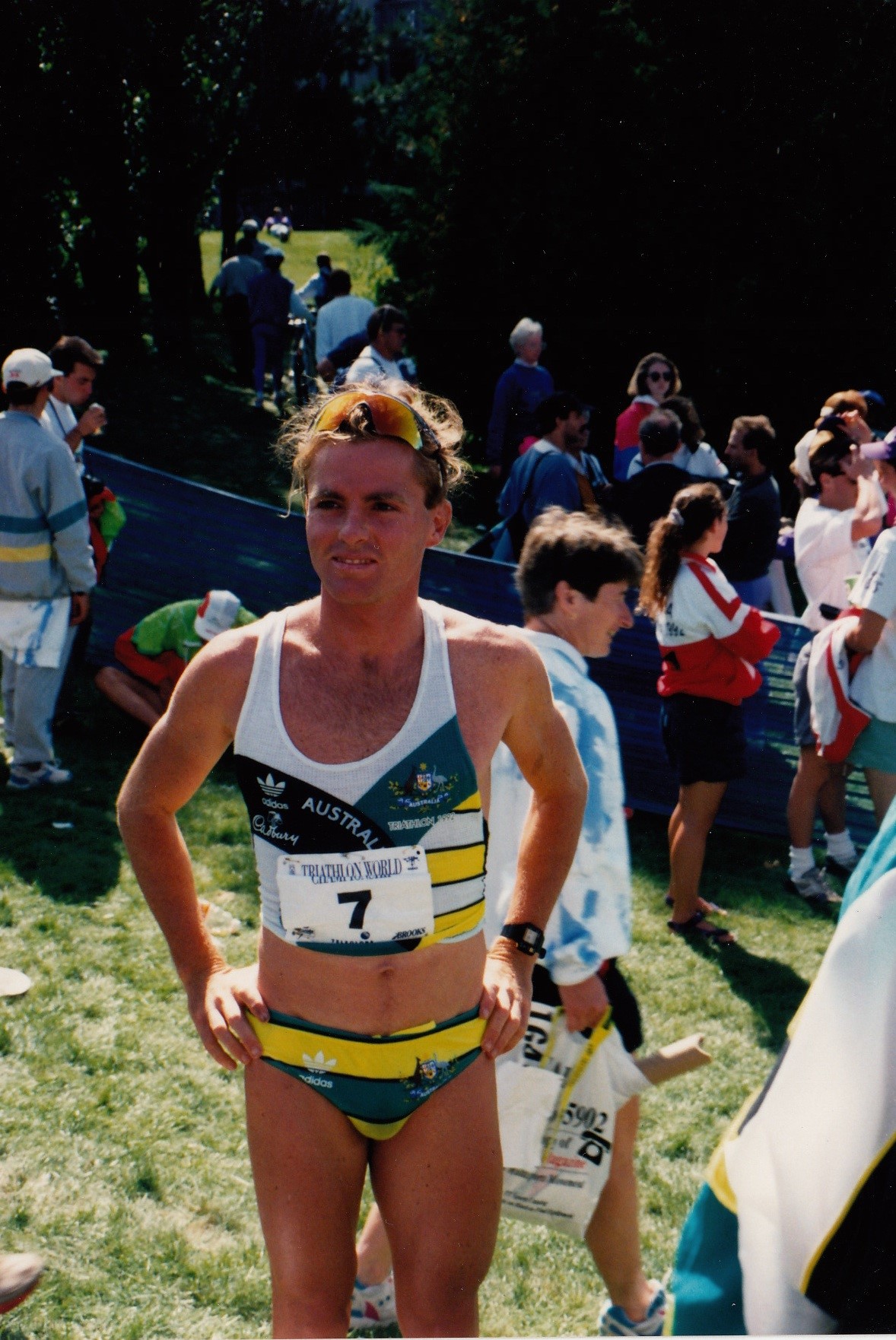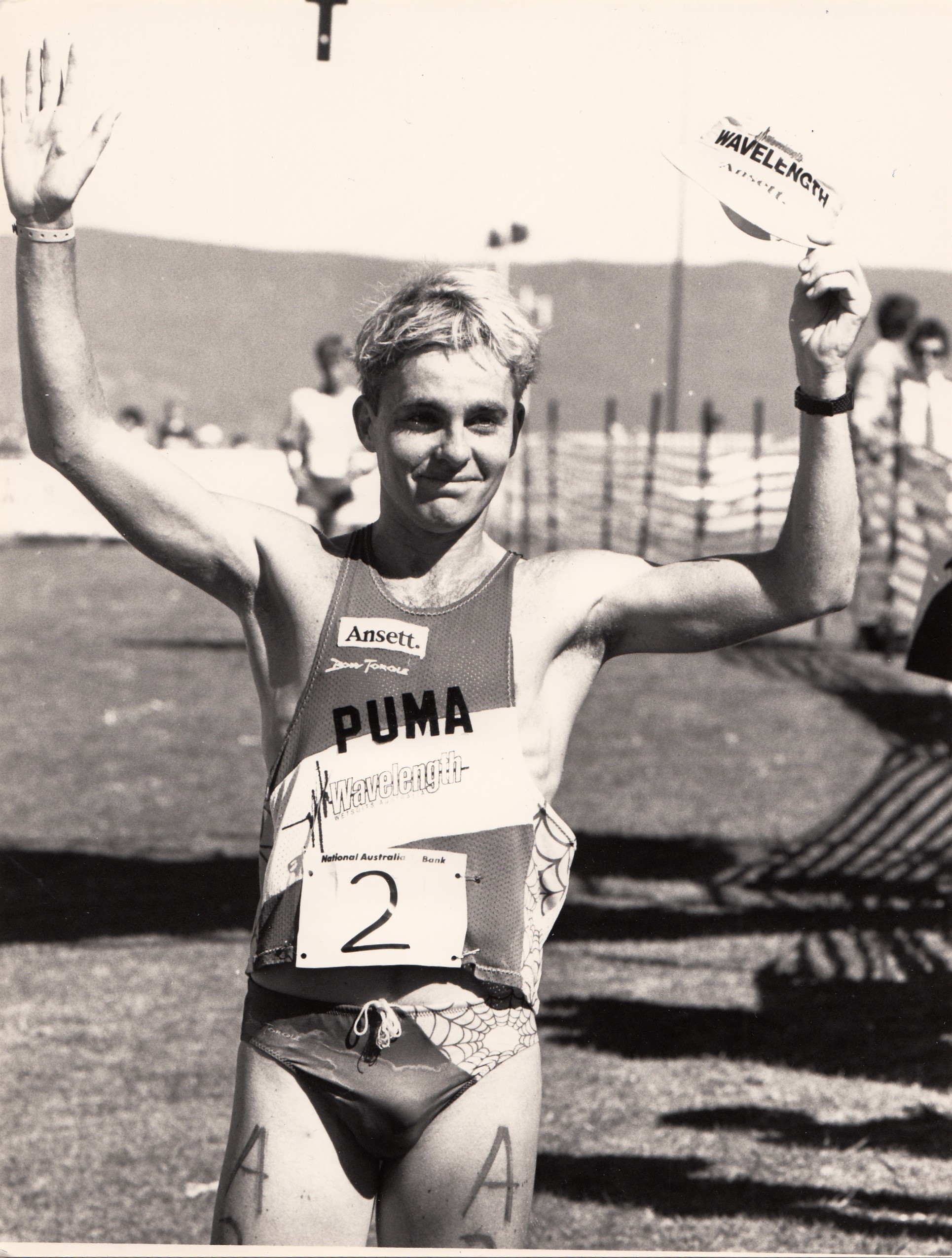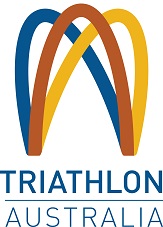Stephen Foster is still finding it hard to accept that “little old him” will be inducted into the Triathlon Australia Hall of Fame in Melbourne on March 20.
Foster, a ground breaking never-say-die triathlete from the 1980s and 1990s and Louise McKinlay (formerly Bonham) a three-time Ironman Australia winner of the same era, both set the standard for today’s modern day triathletes.
They will both be inducted in the HOF at Triathlon Australia’s Celebration of Champions Dinner at the Pullman Hotel.
“I am very humbled, very humbled…..I can’t believe that ‘little old me’ will be in the Hall of Fame,” said Foster, who paved the way for triathlon in Australia and around the world in the 1980s and 1990s.
Among a string of amazing successes, Foster became the first non-American to win the famed Chicago triathlon and in doing so caused quite a stir after finishing third to the legend Scott Tinley and Mark Dragon in his Ironman debut at just 18.
“I guess (the induction) is for helping put Australia on the racing map….forging a pathway in the sport when there was no road…because I certainly never won a world title,” said Foster.
 |
“I just had this tunnel vision; I wasn’t really good at sport at school but when I discovered this sport called triathlon I just wanted to win a world title and I trained myself inside out to get to where I wanted to go.”
But he was without a doubt Australia’s finest triathlete never to win a world title – because he did just about everything else – and did it with an extraordinary inner strength to achieve his goals.
Although he suffered serious injuries in a cycling accident in November 1988, and took a full year to return to his winning form, he was named Triathlon Sports Triathlete of the Year in 1987, 1988, and 1990, won the official Australian Championships in 1987, 1988, 1990 and 1991, and also claimed the Australia long course title in 1988 and 1996.
And he did it like so many of his peers, including fellow Hall of Famers Greg Welch and Brad Bevan in a singlet and a pair of sluggos.
“When they handed us a pair of those new tri suits back in 1984 we looked at them and discarded them, thinking what are these? And we went back to the sluggos…if only we had held on to them,” said Foster, reminiscing.
“I look back at my win in Noosa in 1987 and think what was I thinking, running around the streets in front of all those people half naked….the way we raced back them and the way they look now…it’s chalk and cheese.
“My career was certainly a rollercoaster ride and I don’t look back and celebrate all the races I had and the successes I had but the amazing people I met and learning the meaning of the words ‘true champion’ and knowing it is someone who gets knocked down but who gets back up and keeps going, no matter who you are or where you finish.”
Talking to Stephen Foster it doesn’t take you long to realise that in fact you are in fact talking to a true champion.
When he did reflect on some of his races it wasn’t about the victories or the podium finishes but about how he went about those races and what really drove him to those successes.
Like Chicago in 1988 when he became the first non-American to win the famed Chicago Triathlon – one of, if not the largest triathlon in the world.
“I remember coming off the bike with six others and we were two-and-a-half minutes behind American Mike Pigg, who was ‘the man’ in the US at the time,” recalled Foster.
“But I just put my head down and my mind on the job and by seven kilometres I had caught Mike and I reckon by that stage my eyeballs were popping out of my head but I went for broke over the final three kilometres and dropped him, winning by 23 seconds.
“Mike was that shocked he asked the officials to make sure I hadn’t cut any corners and had been passed all the check points.
“When the officials confirmed that in fact I had covered the entire course, he left for the airport and didn’t stay for the presentation – so that win caused quite a stir.”
To put the win in perspective, Mike Pigg is recognised as one of the toughest athletes ever.
Australia’s own Chris McCormack when asked about Mike Pigg, said “in my honest opinion, he was the most hard-core racer the sport had ever seen.”
“He was an absolute monster on the bike and had so much heart he was inspiring to watch. He was all heart and pushed himself so hard you could see it in his face. Actually I think Piggy won most of his races out of sheer heart, and is so often an athlete who is forgotten from this great era. In the late 80's there was a period where he was almost unbeatable. He was known for being an amazing biker and an all around good guy.”
What’s that say about Stephen Foster – truly a worthy inductee into Triathlon Australia Hall of Fame.
PROFILE: Mornington Peninsula school boy, Stephen Foster, regarded himself as an ‘abstract failure at sport’, but a ‘light bulb went off in his head’ when he watched television footage of Julie Moss crawling across the finish line at the Hawaiian Ironman in February 1982. In his first attempt at a triathlon, the 1983 Nautilus Triathlon, he was the first junior home, and 15th overall. That was enough – he was hooked.
At the age of 18, he competed in the iron-distance 1984 Triple M Triathlon. He finished third behind 1982 Ironman World Champion American Scott Tinley, and one of Australia’s top athletes, Marc Dragan. After another busy, successful season, with numerous wins at races across Victoria, Foster finished third in the 1985 Great Lakes International Triathlon behind Grant Boswell, an American athlete who had finished third at Hawaii, and Marc Dragan. He went on to win at Devonport, which many retrospectively classed as the 1986 Australian championships.
 |
Foster peaked just as the national circuit began to take shape. Although he suffered serious injuries in a cycling accident in November 1988, and took a full year to return to his winning form, he was named Triathlon Sports Triathlete of the Year in 1987, 1988, and 1990, won the official Australian Championships in 1987, 1988, 1990 and 1991, and also claimed the Australia long course title in 1988 and 1996.
Following his early success, an encouraging win against Scott Tinley at the 1986 Big Apple Mazda Triathlon, and a sprint for second place with Tinley and European Champion Rob Barel at the 1987 unofficial World Sprint Triathlon Championships in Perth, Foster began to dream of competing overseas. He finished third at the unofficial world championships in Kelowna Canada in 1988, and won at the famous USTS Chicago Triathlon. Foster was unable to contest the first official world championships in 1989, but placed third the following year at Orlando, and fourth in 1992. In 1993, he won the Embrun ITU World Cup. Foster gradually transitioned into coaching and age group racing in Victoria, where he continues to frequent the podium.


Follow us on:


